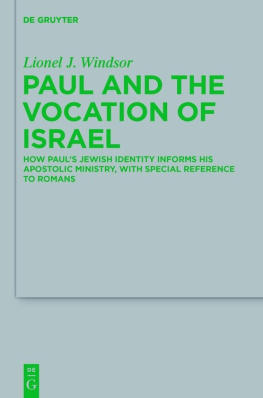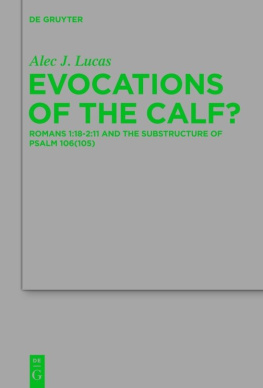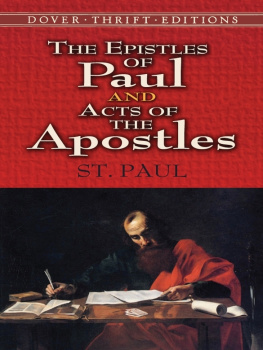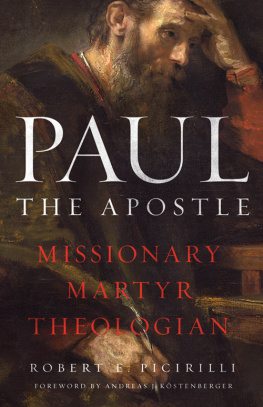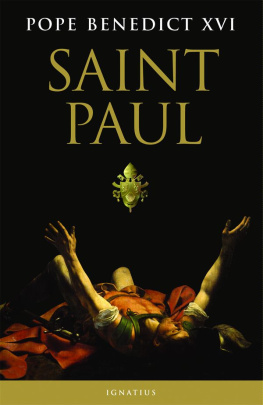Acknowledgements
This book is based on a PhD thesis completed at Durham University in 2012. I cannot express enough my gratitude for Bronwyn, my wife and true companion of fifteen years, who supported and loved me all the way through the trials and joys of the three years that began when we uprooted our family and moved halfway around the world from Sydney to Durham. The endeavour was very much a joint effort, and Bronwyn deserves as much credit as I. Our children, Adelaide, Harry and Ellie, committed members of the Australian Diaspora, were a joy and a delight. Our extended family, especially our parents, were a constant source of support and care during our time in the UKdespite our being ten thousand miles away.
Having time and space to study is, of course, a great privilege which requires tangible support. We are grateful to the trustees of the Joan Augusta Mackenzie Travelling Scholarship, which provided just over a third of our expenses. We also wish to extend many thanks for the gifts from brothers and sisters in churches in the Sydney Diocese: Kurrajong Anglican Church, Unichurch / Campus Bible Study at the University of New South Wales, St Augustines Anglican Church at Neutral Bay, St Michaels Anglican Church at Wollongong; as well as from Christchurch Durham. So many prayed for us and provided us with the financial support that has enabled us to live in the UK. Sandy Grant, Dean of St Michaels Anglican Cathedral in Wollongong, provided me with valuable encouragement and practical help in the period leading up to the commencement of the PhD, and has continued his encouragement and brotherly care to this day. The saints at Christchurch Durham were our church family, who ministered to us and enabled me to keep my feet on the ground of Christian ministry while my head sometimes felt like it was in the clouds.
In writing this book, I am of course indebted to many scholars and teachers who have gone before me. Many of the ideas and methods in this work stem from my experience at Moore College in Sydney; I greatly value the teaching and friends made during my time there. Mark Thompson and John Woodhouse, in particular, have been superb role models as pastor-theologians. I should also mention the invaluable legacy of Donald Robinson, a pioneer of evangelical biblical theology who taught the students at Moore College about the importance of the Jew-Gentile dynamic as an interpretative key to the New Testament long before it became popular in mainstream scholarship. I owe a number of the key ideas in this book to his remarkably fertile mind. I am also immensely grateful for the ministry of Phillip Jensen, whose teaching and training showed me the importance of keeping in-depth scholarly theology and practical ministry firmly intertwined, despite the constant pressures to separate them. I also owe a great deal to Brian Rosner, my Masters supervisor, whose insights have inspired me, whose encouragement led me to take up PhD study, and whose help in smoothing the way (graciously letting me go as a potential PhD candidate at Moore) contributed a great deal to the ease of transition from Sydney to Durham. I would also like to thank Con Campbell, who graciously pointed me to Durham as a potential place for further study.
My decision to come to study at Durham, while costly, was made in light of its reputation as a place of superb scholarship. I was not disappointed. The Department of Theology and Religion at Durham University was a stimulating and challenging environment, and I benefitted greatly from the experience. I am especially grateful for my supervisor, Francis Watson. Professor Watson is not only a deeply theological thinker, he is also an enormously insightful reader of texts. His simultaneously sympathetic and critical reading of my own text (through so many iterations) not only played a key role in shaping the final product, it also provided me with an outstanding model of critical scholarly engagement. I would also like to extend special thanks to Lutz Doering, my secondary supervisor, who went beyond the call of duty in providing me with many hours of personal tuition in understanding the background to ancient Jewish texts. My examiners, John Barclay and William Campbell, honoured my work with exceedingly careful reading and invaluable further insights.
I would also like to express my sincere thanks to Albrecht Dhnert and the editorial team at Walter de Gruyter, who provided many further beneficial recommendations and suggestions for improvement of the manuscript for this publication in the BZNW series.
I hold fond memories of the study rooms at 37 A Bailey, Durham, where the bulk of this work was written. We had a lot of fun, and I have benefitted enormously from the depth of spiritual and academic insight represented by my fellow students. I particularly value the special friendship of Peter Orr, whose passion and commitment to the gospel of Christ continues to inform and encourage my own teaching and ministry.
Bibliography
Abasciano, Brian J. 2005. Pauls Use of the Old Testament in Romans 9.1 9: An Intertextual and Theological Exegesis. Library of New Testament Studies 301. London: T&T Clark.
. 2007. Diamonds in the Rough: A Reply to Christopher Stanley Concerning the Reader Competency of Pauls Original Audiences. Novum Testamentum 49 (2): 153 183.
. 2011. Pauls Use of the Old Testament in Romans 9.10 18: An Intertextual and Theological Exegesis. Library of New Testament Studies 317. London: T&T Clark.
Agamben, Giorgio. 2005. The Time That Remains: A Commentary on the Letter to the Romans. Translated by Patricia Dailey. Meridian: Crossing Aesthetics. Stanford: Stanford University Press.
Aletti, Jean-Nol. 1988. Rm 1,18 3,20: Incohrence ou cohrence de largumentation paulinienne? Biblica 69 (1): 47 62.
The Apostolic Fathers. 2003. Edited by Bart D. Ehrman. Translated by Bart D. Ehrman. 2 vols. Loeb Classical Library. Cambridge: Harvard University Press.
Aristophanes. 1998 2007. Edited by Jeffrey Henderson. Translated by Jeffrey Henderson. 5 vols. Loeb Classical Library. Cambridge: Harvard University Press.
Aune, David E. 2001. From the Idealized Past to the Imaginary Future: Eschatological Restoration in Jewish Apocalpytic Literature. In Restoration: Old Testament, Jewish and Christian Perspectives, edited by James M. Scott, Supplements to the Journal for the Study of Judaism 72, pp. 147 177. Leiden: Brill.
Badenas, Robert. 1985. Christ the End of the Law: Romans 10.4 in Pauline Perspective. Journal for the Study of the New Testament Supplement Series 10. Sheffield: University of Sheffield.
Baker, Murray. 2005. Paul and the Salvation of Israel: Pauls Ministry, the Motif of Jealousy, and Israels Yes. Catholic Biblical Quarterly 67 (3): 469 484.
Barclay, John M. G. 1987. Mirror-Reading a Polemical Letter: Galatians as a Test Case. Journal for the Study of the New Testament 31: 73 93.
. 1995. Paul Among Diaspora Jews: Anomaly or Apostate? Journal for the Study of the New Testament 60: 89 120.
. 1996. Jews in the Mediterranean Diaspora from Alexander to Trajan (323 BCE 117 CE). Edinburgh: T&T Clark.
. 1998. Paul and Philo on Circumcision: Romans 2:25 29 in Social and Cultural Context. New Testament Studies 44 (4): 536 556.
. 2002. Pauls Story: Theology as Testimony. In Narrative Dynamics in Paul: A Critical Assessment, edited by Bruce W. Longenecker, pp. 133 156. Louisville: Westminster John Knox.

